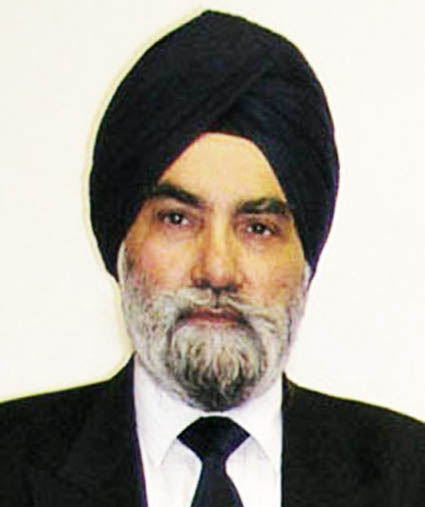Cautious Appreciation of Sikh Praise and Projects by PM Modi

Prabhu Chawla, a Padam Bhushan awardee journalist, was born in West Punjab in 1946. He knows the Sikhs well. In an article in the Indian Express of 13 November 2022, he advised PM Modi: He has to keep in mind that Sikhs, a highly motivated and emotional community, need more than photo ops or plum posts. He must demolish the negative hype that Hindutva wishes to subsume Sikh identity.
But then Chawla also wrote that Modi has taken upon himself to complete the unfinished task of integrating the Sikhs with the Sangh Parivar. If that is the aim of PM Modi, then Sikh caution is justified!
Since he became Prime Minister, Modi has sought the advice of prominent Sikhs and promoted events and projects to raise the Sikh profile in India and abroad. While commemorating some centennial Gurpurabs, he continues to publicly express much appreciation for frontline Sikh sacrifices for India. Despite losing the elections in Panjab in the aftermath of the farmers agitation against the black farm laws, his relationship with some Sikh groups and elite has improved. Meanwhile, others remain cautious for historical reasons.
Most Sikhs do not distinguish between the Indian political parties in power and the treatment they have received since the partition of the Indian sub-continent. They have not forgotten 1984. Nevertheless realpolitik, the current circumstances and the ground realities do matter when they deal with the powers that be.
Sikh history shows that the independent theo-political identity of the Khalsa Panth, cannot be compromised. It cannot be assimilated and absorbed into another religio-cultural system. More so, when the declared objective of the Hindutva agenda is to make India a Hindu Rashtra (Hindu nation). According to one source, Hindu Rashtra stands for the way of life based on certain []]Indic] civilisational and cultural values that people practise in India which are manifestations of Hindutva or Hinduness.
Sikhs can be willing partners and equal citizens in any country but they cannot be lured into, or forced to subscribe to, or made part of an umbrella religion or civilisation. As guided by the revolutionary theo-political revolution of Guru Nanak-Gobind Singh, the Khalsa as the Teesra Panth, the third path, stands apart from both, the Abrahamic and the Indic systems. Yet Sikhs do share universal ideals and values will all. They have an outstanding record as loyal citizens and allies of just states.
That was the reason why, even by softening his policy towards the Khalsa, Zakarya Khan was unable to win over the Sikhs by offering them the title of Nawab with jagir of the three parganas of Dipalpur, Kanganval and Jhabal in 1733. The Mughals did not change their oppressive state policy and the Khalsa continued with the freedom struggle.
Thus, Chawla is right that photo opportunities, plum posts, awards and honours, and lavish praise for the Sikhs will be seen through as divisive tactics unless followed through with concrete steps to treat Sikhs as a political entity and to address genuine Sikh grievances.
Some argue that post 1947 treatment of Sikhs in India and the oft repeated BJP agenda to assimilate the Sikhs as part of Hinduism, would suggest caution. Or, to put it in the words of a Sikh editor in another context, the Sikh approach should be pragmatic with caution in the light of emerging new realities.
Gurmukh Singh OBE
Principal Civil Servant Retd (UK)